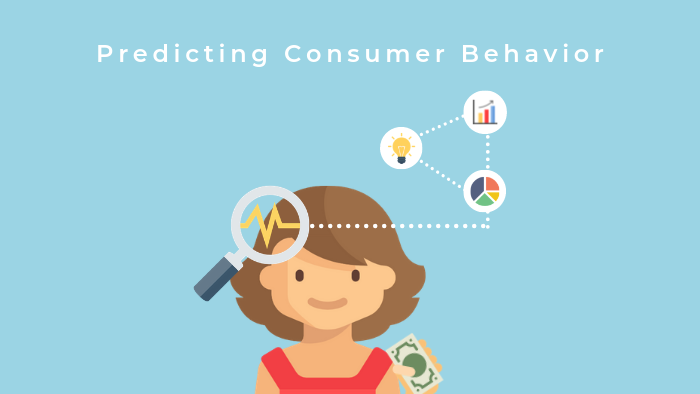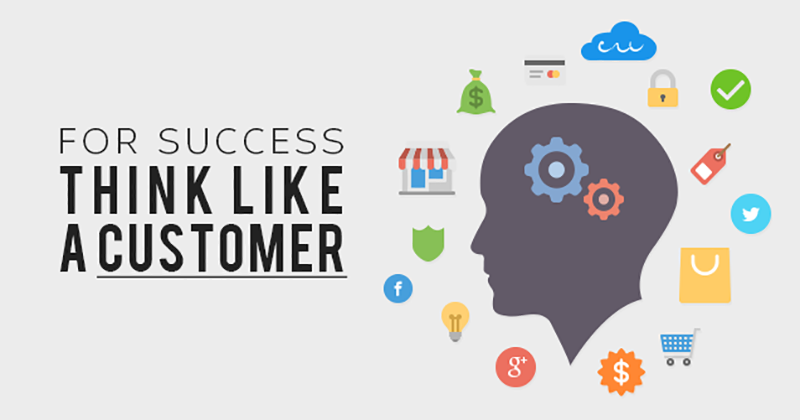
Unlocking the Potential of Social Media for B2B Lead Generation
October 31, 2023
The Role of SEO in B2B Lead Generation
November 2, 2023In today’s digital age, the amount of data generated by consumers is staggering. Every click, like, and purchase leaves a digital footprint that can be analyzed and leveraged to gain valuable insights into consumer behavior. This is where AI marketing comes into play.
AI marketing, or artificial intelligence marketing, is revolutionizing the way businesses understand and engage with their customers. By harnessing the power of machine learning algorithms, AI marketing can sift through massive amounts of data to uncover patterns, trends, and correlations that were previously hidden. This allows marketers to make data-driven decisions and tailor their strategies to better meet the needs and preferences of their target audience.
One of the key advantages of AI marketing is its ability to analyze unstructured data. Traditionally, marketers relied on structured data, such as demographic information or purchase history, to understand consumer behavior. However, with the rise of social media and other online platforms, a significant amount of data is now unstructured – think tweets, reviews, and blog posts. AI marketing algorithms can analyze this unstructured data and extract valuable insights, such as sentiment analysis or topic clustering, to gain a deeper understanding of consumer preferences and opinions.
Another area where AI marketing is reshaping consumer behavior understanding is personalization. With the help of AI algorithms, marketers can create highly personalized experiences for their customers. By analyzing past interactions and preferences, AI can predict what products or content a customer is most likely to be interested in. This allows marketers to deliver targeted recommendations, offers, and advertisements, increasing the likelihood of conversion and customer satisfaction.
AI marketing also enables real-time decision-making. Traditional marketing strategies often rely on historical data and market research, which can be time-consuming and may not accurately reflect current consumer behavior. AI algorithms, on the other hand, can analyze data in real-time, allowing marketers to adapt their strategies and campaigns on the fly. This agility is crucial in today’s fast-paced digital landscape, where consumer preferences and trends can change rapidly.
However, it’s important to note that AI marketing is not without its challenges. Privacy concerns and ethical considerations are at the forefront of this technology. Marketers must strike a delicate balance between leveraging consumer data to provide personalized experiences and respecting privacy rights. Transparency and consent are key in building trust with customers and ensuring that AI marketing is used responsibly.
In conclusion, AI marketing is transforming the way we understand consumer behavior. By analyzing vast amounts of data, AI algorithms can uncover valuable insights and enable personalized, real-time marketing strategies. However, it’s essential for marketers to approach AI marketing with ethics and privacy in mind. With the right balance, AI marketing has the potential to revolutionize the industry and drive business success.
Understanding AI Marketing
AI marketing is the application of artificial intelligence techniques to analyze and interpret consumer data. It involves using machine learning algorithms to identify patterns, trends, and correlations in the data, and then using this information to make informed marketing decisions. By leveraging AI, marketers can gain a deeper understanding of consumer behavior and tailor their strategies accordingly.
The Power of AI in Consumer Behavior Analysis
AI marketing has revolutionized the way we understand consumer behavior. Traditional methods of market research, such as surveys and focus groups, can be time-consuming, expensive, and often yield biased results. AI, on the other hand, can analyze vast amounts of data in real-time, providing marketers with instant insights into consumer preferences, interests, and purchasing habits.
The Power of AI Marketing
AI marketing utilizes advanced algorithms and machine learning techniques to analyze massive amounts of data and extract meaningful insights. Traditional marketing techniques often rely on subjective observations and limited data samples. With AI marketing, businesses can tap into a vast pool of data from various sources such as social media, online shopping behavior, and customer feedback.
Understanding Consumer Behavior
Consumer behavior analysis is crucial for businesses to tailor their marketing strategies effectively. AI marketing enables businesses to go beyond demographic segmentation and understand the underlying motivations and preferences of their customers. By analyzing patterns and trends in consumer data, AI algorithms can identify hidden correlations and predict future behaviors.
Personalization and Targeting
One of the key benefits of AI marketing is its ability to personalize marketing messages and target specific customer segments. By analyzing individual customer data, AI algorithms can create highly personalized marketing campaigns that resonate with each customer’s unique preferences and needs. This level of personalization not only improves customer satisfaction but also increases the effectiveness of marketing efforts.
Real-Time Insights
AI marketing provides businesses with real-time insights into consumer behavior. Traditional market research methods often involve time-consuming surveys and focus groups. With AI marketing, businesses can gather data in real-time and make immediate adjustments to their marketing strategies. This agility allows businesses to stay ahead of the competition and respond quickly to changing consumer trends.
Ethical Considerations
While AI marketing offers numerous advantages, it also raises ethical concerns. The collection and analysis of vast amounts of consumer data raise questions about privacy and data protection. Businesses must ensure that they are transparent about the data they collect and how it is used. Additionally, there is a need for regulations to govern the ethical use of AI marketing to prevent misuse and discrimination.
Personalization at Scale
One of the key strengths of AI marketing is its ability to deliver personalized experiences at scale. Traditional marketing methods often struggle to cater to the diverse needs and preferences of individual consumers. However, AI-powered algorithms can analyze large datasets and identify patterns and trends that would be impossible for humans to detect. This allows businesses to tailor their marketing messages and offers to each customer, creating a highly personalized experience that drives engagement and conversion rates.
Predictive Analytics
AI marketing also excels in its predictive capabilities. By analyzing historical data, AI algorithms can forecast future consumer behavior with a high degree of accuracy. This enables businesses to anticipate customer needs and preferences, allowing them to proactively tailor their marketing strategies and stay ahead of the competition. With AI marketing, businesses can identify potential customers, predict their likelihood to purchase, and target them with the right message at the right time.
Enhanced Customer Insights
AI marketing goes beyond just analyzing consumer behavior; it also provides businesses with deep insights into the emotions, motivations, and preferences that drive purchasing decisions. By analyzing social media posts, online reviews, and customer feedback, AI algorithms can uncover hidden patterns and sentiments that traditional market research methods may miss. This rich understanding of consumer psychology enables businesses to create marketing campaigns that truly resonate with their target audience, fostering stronger brand loyalty and customer satisfaction.
Ethical Considerations
As AI marketing continues to evolve, it is crucial to address the ethical considerations that come with it. The collection and analysis of vast amounts of consumer data raise concerns about privacy and data security. Businesses must ensure that they are transparent about their data collection practices and take steps to protect consumer information. Additionally, there is a need to ensure that AI algorithms are unbiased and do not perpetuate discriminatory practices. Striking the right balance between personalization and privacy will be crucial in the future of AI marketing.

Understanding the Motivations and Preferences of Consumers
When businesses have a comprehensive understanding of consumers’ behavior, they are able to identify the motivations and preferences that drive their purchasing decisions. By analyzing data and conducting market research, businesses can gain valuable insights into what makes their target audience tick. This knowledge allows them to tailor their marketing strategies and product offerings to better meet the needs and desires of their consumers.
Building Stronger Customer Relationships
Knowing consumers’ behavior enables businesses to build stronger and more meaningful relationships with their customers. By understanding their customers’ preferences, businesses can personalize their interactions and provide a more tailored and personalized experience. This not only helps to foster loyalty and repeat business but also creates a positive brand image and reputation.
Anticipating and Adapting to Market Trends
Consumer behavior is constantly evolving, and businesses that are aware of these changes can stay ahead of the curve. By monitoring and analyzing consumer behavior, businesses can anticipate market trends and adapt their strategies accordingly. This allows them to be proactive rather than reactive, giving them a competitive edge in the market.
Enhancing Product Development and Innovation
Knowing consumers’ behavior is crucial for product development and innovation. By understanding what consumers want and need, businesses can create products and services that truly resonate with their target audience. This not only increases the chances of success but also minimizes the risk of developing products that do not meet consumers’ expectations.
Maximizing Marketing Effectiveness
When businesses have a deep understanding of consumers’ behavior, they can create more effective marketing campaigns. By targeting the right audience with the right message at the right time, businesses can significantly increase their chances of success. This results in higher conversion rates, increased sales, and a greater return on investment.
Conclusion
AI marketing is reshaping the way we understand consumer behavior, offering businesses unprecedented insights into their target audience. From personalized experiences to predictive analytics, AI is revolutionizing the marketing landscape. However, it is essential to approach AI marketing with ethical considerations in mind. By harnessing the power of AI responsibly, businesses can unlock new opportunities and create meaningful connections with their customers. The future of marketing is here, and AI is leading the way.



